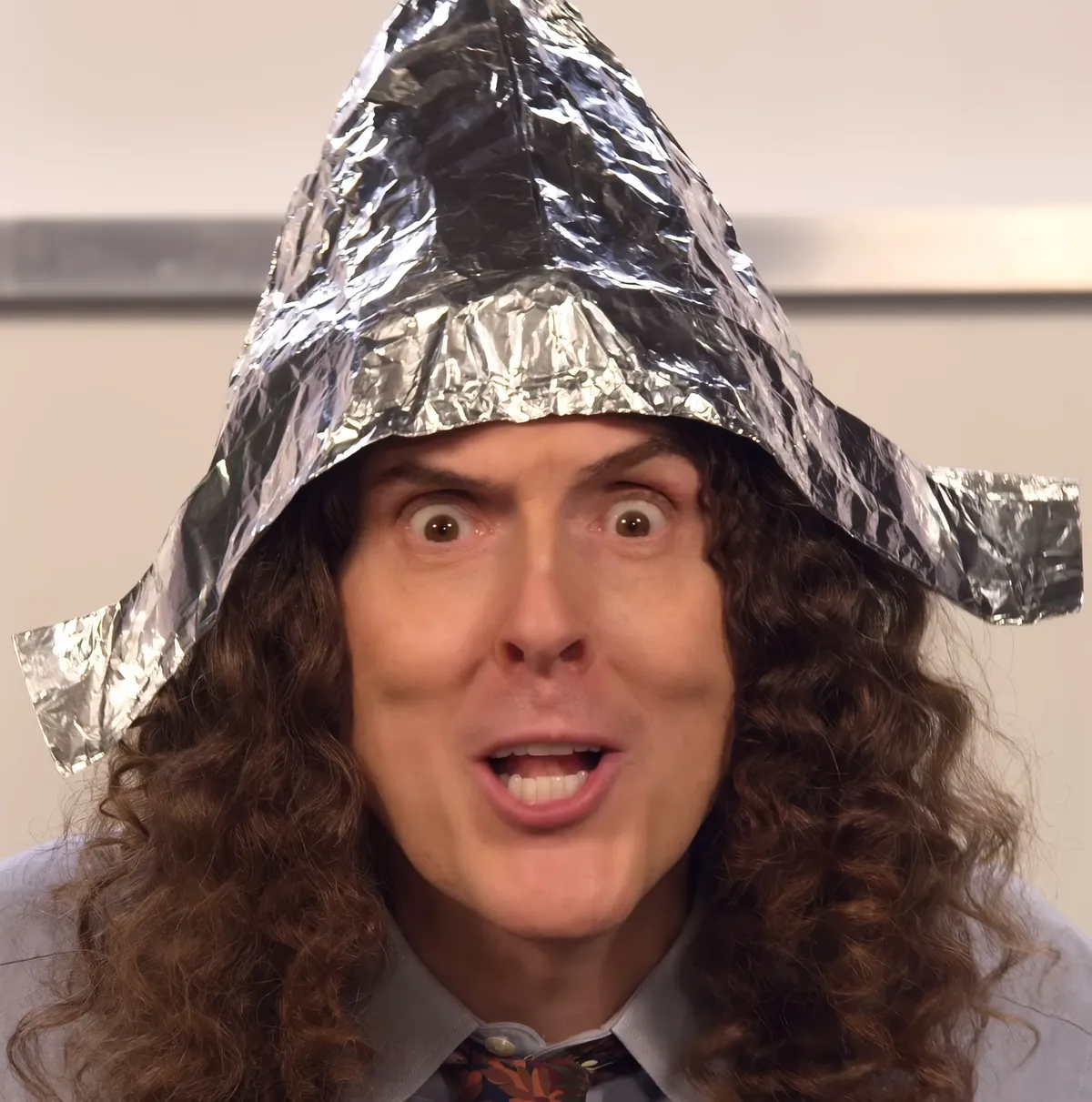article took forever to get to the bottom line. content. 8k content essentially does not exist. TV manufacturers were putting the cart before the horse.
4k tvs existed before the content existed. I think the larger issue is that the difference between what is and what could be is not worth the additional expense, especially at a time when most people struggle to pay rent, food, and medicine. More people watch videos on their phones than watch broadcast television. 8k is a solution looking for a problem.
Hell I still don’t own a 4k tv and don’t plan to go out of my way to buy one unless the need arises. Which I don’t see why I need that when a normal flat-screen looks fine to me.
I actually have some tube tvs and be thinking of just hooking my vcr back up and watching old tapes. I don’t need fancy resolutions in my shows or movies.
Only time I even think of those things is with video games.
4K hardly even makes sense unless your tv is over 70" and your watching it from less than 4 feet away. I do think VR could benefit from ultra-high resolution, though.
https://www.rtings.com/tv/reviews/by-size/size-to-distance-relationship
Extensive write up on this whole issue, even includes a calculator tool.
But, basically:

Yeah, going by angular resolution, even leaving the 8K content drought aside…
8K might make sense for a computer monitor you sit about 2 feet / 0.6m away from, if the diagonal size is 35 inches / ~89cm, or greater.
Take your viewing distance up to 8 feet / 2.4m away?
Your screen diagonal now has to be about 125 inches / ~318cm, or larger, for you to be able to maybe notice a difference with a jump from 4K to 8K.
…
The largest 8K TV that I can see available for purchase anywhere near myself… that costs ~$5,000 USD… is 85 inches.
I see a single one of 98 inches that is listed for $35,000. That’s the largest one I can see, but its… uh, wildly more expensive.
So with a $5,000, 85 inch TV, that works out to…
You would have to be sitting closer than about 5 feet / ~1.5 meters to notice a difference.
And that’s assuming you have 20/20 vision.
…
So yeah, VR goggle displays… seem to me to be the only really possibly practical use case for 8K … other than basically being the kind of person who owns a home with a dedicated theater room.
What this chart is missing is the impact of the quality of the screen and the source material being played on it.
A shit screen is a shit screen, just like a badly filmed TV show from the 80s will look like crap on anything other than an old CRT.
People buying a 4k screen from Wallmart for $200 then wondering why they cant tell its any better than their old 1080p screen.
The problem with pushing up resolution is the cost to get a good set right now is so much its a niche within a niche of people who actually want it. Even a good 4k set with proper HDR support and big enough to make a different is expensive. Even when 8k moves away from early adopter markups its still going to be expensive, especially when compared to the tat you can by at the supermarket.
It is totally true that things are even more complex than just resolution, but that is why I linked the much more exhaustive write up.
Its even more complicated in practice than all the things they bring up, they are focusing on mainly a movie watching experience, not a video game playing experience.
They do not go into LED vs QLED vs OLED vs other actual display techs, don’t go into response latency times, refresh rates, as you say all the different kinds of HDR color gamut support… I am sure I am forgetting things…
Power consumption may be a significant thing for you, image quality at various viewing angles…
Oh right, FreeSync vs GSync, VRR… blargh there are so many fucking things that can be different about displays…
At 1.6 meter for the metric minded. If you really stretch out and can hit the tv with your toes it’s about the right distance.
You’re describing my bedroom tv.
you’re*
It’s not hard, get it right.
Nobody likes a grammar-nazi. Due better mein fuhrer.
gidoombiigiz*
I think it’s NHK, or one of the Japanese broadcasters anyways, that has actually been pressing for 8K since the 1990s. They didn’t have content back then and I doubt they have much today, but that’s what they wanted HD to be.
Not familiar with NHK specifically (or, to be clear, I think I am but not with enough certainty), but it really makes a lot of sense for news networks to push for 8k or even 16k at this point.
Because it is a chicken and egg thing. Nobody is going to buy an 8k TV if all the things they watch are 1440p. But, similarly, there aren’t going to be widespread 8k releases if everyone is watching on 1440p screens and so forth.
But what that ALSO means is that there is no reason to justify using 8k cameras if the best you can hope for is a premium 4k stream of a sporting event. And news outlets are fairly regularly the only source of video evidence of literally historic events.
From a much more banal perspective, it is why there is a gap in TV/film where you go from 1080p or even 4k re-releases to increasingly shady upscaling of 720 or even 480 content back to everything being natively 4k. Over simplifying, it is because we were using MUCH higher quality cameras than we really should have been for so long before switching to cheaper film and outright digital sensors because “there is no point”. Obviously this ALSO is dependent on saving the high resolution originals but… yeah.
it’s not exactly “there is no point”. It’s more like “the incremental benefit of filming and broadcasting in 8k does jot justify the large cost difference”.
Filming in 8k does have advantages. You can crop without losing quality.
I’m sorry, but if we are talking about 8k viability in TVs, we are not talking about shooting in 8k for 4k delivery.
You should be pointing out that shooting in higher than 8k, so you have the freedom to crop in post, is part of the reason 8k is burdensome and expensive.
So correct the person above me, they wrote about shooting in 8k.
The RED V-Raptor is expensive for consumer grade but nothing compared to some film equipment. There are lenses more expensive than an 8k camera.
Which, for all intents and purposes, means there is no point. Because no news network is going to respond to “Hey boss, I want us to buy a bunch of really expensive cameras that our audience will never notice because it will make our tape library more valuable. Oh, not to sell, but to donate to museums.” with anything other than laughter and MAYBE firing your ass.
the point is, the cost/benefit calculation will change over time as the price of everything goes down. It’s not a forever “no point”.
… Almost like it would be more viable to film in higher resolution if more consumers had higher resolution displays?
Not only the content doesn’t exist yet, it’s just not practical. Even now 4k broadcasting is rare and 4k streaming is now a premium (and not always with a good bitstream, which matters a lot more) when once was offered as a cost-free future, imagine 8k that would roughly quadruple the amount of data required to transmit it (and transmit speee is not linear, 4x the speed would probably be at least 8x the cost).
And I seriously think noone except the nerdiest of nerds would notice a difference between 4k and 8k.
That’s usually the case
Not only does it not exist, it isn’t wanted. People are content watching videos on YouTube and Netflix. They don’t care for 4k. Even if they pay extra for Netflix 4k (which I highly doubt they do) I still question if they are watching 4k with their bandwidth and other limiting factors, which means they’re not watching 4k and are fine with it.
TV manufacturers are idiots.
deleted by creator
The settings app on my smart TV sometimes won’t launch. I can’t fucking believe it. It’s a $1000 TV.
My $2500 TV doesn’t have a power button if it makes you feel better.
This $8k tv has no bezel and no cables /s
tv absolutely peaked at this (serious)

You can have a smart TV but never set up any of the smart features. I have two LG OLED TVs but rarely touch anything on the TV itself. I’ve got Nvidia Shields for streaming and turning it on or off also turns the TV on or off. Same with my Xbox.
I just need to figure out if I can use CEC with my SFF gaming PC (so that turning it on also turns the TV on, and turning it off turns the TV off), then I won’t have to touch the TV’s remote again.
Ethernet port or wifi are good for controlling the TV using something like Home Assistant. I have my TVs on a separate isolated VLAN with no internet access. I have a automation that runs when the TV turns on, to also turn on some LED lights behind the TV.
deleted by creator
Some of these devices have even been known to look for other similar devices within WiFi range, and phone home that way (i.e., send analytics data via a neighbor’s connected TV as a proxy).
Ummm, wut? I’m going to need some quality sources to back this claim up.
Yea, this paragraph feels like fear mongering. I’m not saying OP didn’t see that somewhere, but from a tech standpoint, the TV still has to authenticate with any device it’s trying to piggy back off the wifi for. Perhaps if there were any open network in range it could theoretically happen, but I’m guessing that it’s not.
I do remember reading that some smart TV was able to use the speakers as a mic to record in room audio and pass that out if connected. It may have been a theoretical thing but it might have been a zero day I read about. It’s been some years now.
Actually, it’s true. Amazon’s sidewalk works in a similar way, where if the sensor is not connected to the internet, it will talk to local Echo devices like your speakers that are connected to the internet and pass the data to Amazon through your device’s network.
TVs will look for open Wi-Fi networks. And failing that, they could very well do this exact same thing.
Edit: The way it works is that the echo devices contain a separate radio that works over the 868 to 915 megahertz industrial scientific and medical band, so the sensor communicates with your echo that way, and then your echo communicates it to the network as if it’s coming from the echo itself, not another device. So the sensor gets connected to the network without your network realizing that it’s actually a third-party device. To your network, the only thing it sees is the Echo, but to the Echo, it sees both your network, which it’s connected to, and the sensor, so it’s acting as a relay.
I forgot the Sidewalk is a thing. While that tech does kind of do what OP was saying, Sidewalk is limited to only Amazon Sidewalk compatible devices, like the echo line and ring. Just at a quick glance, there are no smart TVs that can connect to that network.
That said, it is an opt out service, which it awful. No smart TVs will connect, but I’d recommend disabling for anyone that uses Amazon devices.
Yeah, I was just using Sidewalk as an example of something a smart TV could use something like that.
deleted by creator
I totally get where you’re coming from. It’s hard to find devices like that. I think the issue is that regular customers are demanding the smart features, and using them without caring about privacy aspects.
I know that sounds ridiculous, since I can “simply not use them,” but I want to spend my money on an appliance, not a consumer data collection tool.
For what it’s worth you’re actually spending the manufacturer’s money (or at least some of their profit margin) on a data collection device that they won’t get to use.
Smart devices are cheaper because the data collection subsidizes them.
They are called “Digital Signage Panels” and they cost an arm and a leg.
The data collection subsidises the cost of your TV, so that brings the cost down. Also, digital signage panels are rated for 24/7 use, which significantly increases their cost.
Honestly? Get a large monitor and a sound bar.
Some of these devices have even been known to look for other similar devices within WiFi range, and phone home that way (i.e., send analytics data via a neighbor’s connected TV as a proxy).

Your tv price is subsidized by the presence of those network connections. I recommend using universal remote.
Sometimes that doesn’t even matter anymore; they’ll refuse to work now without a network set up.
If it wants a network then stick it on an isolated VLAN with no internet access.
That’s not what that means and you know it. It refuses to work unless it can successfully phone home over the Internet.
So people in rural areas without good internet, or places where the network is airgapped, can’t use them at all? Seems like there’s be a way around it.
I blacklist the TVs Ethernet and WiFi MAC addresses. I strongly encourage using a computer, Apple TV, or anything that can’t fingerprint everything you use your tv for.
This. I’ll happily buy an 8k TV only if it’s a dumb TV/monitor.
No, I want only one DP port and to have a separate box that selects sources. That way I have the ports I want
I don’t want 8K. I want my current 4K streaming to have less pixilation. I want my sound to be less compressed. Make them closer to Ultra BluRay disc quality before forcing 8K down our throats… unless doing that gives us better 4K overall.
Yeah 4K means jack if it’s compressed to hell, if you end up with pixels being repeated 4x to save on storage and bandwidth, you’ve effectively just recreated 1080p without upscaling.
Just like internet. I’d rather have guaranteed latency than 5Gbps.
Yep, just imagine how bad the compression artefacts will be if they double the resolution but keep storage/network costs the same.
Doubling the dimensions make it 4x the data.
That’s not true for compressed video. It doubles the bitrate for the same quality on modern codecs (265, av1, etc.)
Not if you only double it in one direction. Checkmate.
Increasing resolution but keeping the same bitrate still improves the image quality, unless the bitrate was extremely low in the first place. Especially with modern codecs
20mbps 4k looks a lot better than 20mbps 1080p with AV1
Bingo, if I were still collecting DVDs/HD DVDs like I was in the 90’s, it might be an issue. Streaming services and other online media routed through the TV can hardly buffer to keep up with play speed at 720, so what the fuck would I want with a TV that can show a higher quality of picture which it can also not display without stutter-buffering the whole of a 1:30:00 movie?
Streaming services and other online media routed through the TV can hardly buffer to keep up with play speed at 720
This is a problem with your internet/network, not the TV.
I would much rather have 1080p content at a high enough bitrate that compression artifacts are not noticeable.
Yeah, as long as they don’t discontinue them.
Here in Australia, they are almost gone. Disney doesn’t release anymore and other studios only release the biggest of titles, smaller movies get less and less releases. Some TV shows only get DVD. Its got me importing discs for things I really want and importing a lot of stuff from the high seas
It’s not just Australia, it’s worldwide. People don’t care about physical media anymore because the benefits of digital far outweigh the drawbacks.
Even if they discontinue Bluray, 4k content isn’t going anywhere or 4k TVs do too.
The 4k you find on streaming services can’t really be compared to the 4k you find on Blu-ray. It’s a different league. Turns out bitrate actually matters
I do want a dumb 8K TV. I do not want all the so called smart features of a TV. Small Linux device with kodi works way better.
deleted by creator
Some Xiaomi TVs have root exploits, so you can manually disinfect the OS, but it’s cumbersome to get done since you need to enter adb commands over the remote control to get there in the first place.
Easier to just use an external device and the TV as a screen only. Personally I’m using the Nvidia Shield for 5+ years now and regret nothing.
Not ideal, but you can air gap the TV from the network, and use some small sbc, or even a firestick or android box. That’s what I do. Stremio?
As far as my TV is concerned I don’t have an internet connection.
I do want a TV that can access Netflix etc without another box. I just don’t want the surveillance that comes with it.
I personally hate Kodi UI. But I get your point
uh…there are hundreds of Kodi UIs.
I just run mine without ever connecting it to the internet.
I run an Apple TV (shock, walled garden!), as it is the only device I’ve seen that consistently matches frame rates properly on the output.
I am a filmmaker and have shot in 6k+ resolution since 2018. The extra pixels are great for the filmmaking side. Pixel binning when stepping down resolutions allows for better noise, color reproduction, sharpened details, and great for re-framing/cropping. 99% of my clients want their stuff in 1080p still! I barely even feel the urge to jump up to 4k unless the quality of the project somehow justifies it. Images have gotten to a good place. Detail won’t provide much more for human enjoyment. I hope they continue to focus on dynamic range, HDR, color accuracy, motion clarity, efficiency, etc. I won’t say no when we step up to 8k as an industry but computing as a whole is not close yet.
I don’t know if it changed, but when I started looking around to replace my set about 2 years ago, it was a nightmare of marketing "gotcha"s.
Some TVs were advertising 240fps, but only had 60fps panels with special tricks to double framerate twice or something silly. Other TVs offered 120fps, but only on one HDMI port. More TVs wouldn’t work without internet. Even more had shoddy UIs that were confusing to navigate and did stuff like default to their own proprietary software showing Fox News on every boot (Samsung). I gave up when I found out that most of them had abysmal latency since they all had crappy software running that messed with color values for no reason. So I just went and bought the cheapest TV at a bargain overstock store. Days of shopping time wasted, and a customer lost.
If I were shown something that advertised with 8K at that point, I’d have laughed and said it was obviously a marketing lie like everything else I encountered.
Asus makes their version of a 4k OLED LG panel with no shitty ‘smart’ software.
in that situation, Asus are the shitty part, though it is nice to see more TV-sized monitors. Fuck HDMI.
Did I miss something with Asus recently? I’ve only had good experiences with their hardware.
ASUS used to be the goat brand. They have since enshittified, and the biggest hit was their customer service. It’s 100% ass now. The product itself is really hit or miss now too.
I’ll consider you lucky. I’ve had many experiences with their hardware across different segments (phones, tablets, laptops, mainboards, NICs, displays, GPUs).
They’re an atrocious vendor with extremely poor customer support (and shitty SW practicies for UMA systems and motherboards).
I don’t think many people have been as unfortunate as I have with them, the general consensus is they mark their products up considerably relative to competition (particularly mainboards & GPUs).
To be fair, their contemporaries arent much butter.
Dang.
I switched to ASRock for my AMD build for specific feature sets and reading ASUS AM5 stuff it looks like that was a good idea.
But ASRock 800 series AM5 boards are killing granite ridge 3D CPUs en masse. Funny enough, it happened to me.
I begrudgingly switched to Asus after my CPU was RMA’d as that was the only other vendor to offer ECC compat on a consumer platform.
How about 7800X3D?
For what content? Video gaming (GPUs) has barely gotten to 4k. Movies? 4k streaming is a joke; better off with 1080 BD. If you care about quality go physical… UHD BD is hard to find and you have to wait and hunt to get them at reasonable prices… And these days there are only a couple UHD BD Player mfg left.
As someone who stupidly spent the last 20 or so years chasing the bleeding edge of TVs and A/V equipment, GOOD.
High end A/V is an absolute shitshow. No matter how much you spend on a TV, receiver, or projector, it will always have some stupid gotcha, terrible software, ad-laden interface, HDMI handshaking issue, HDR color problem, HFR sync problem or CEC fight. Every new standard (HDR10 vs HDR10+, Dolby Vision vs Dolby Vision 2) inherently comes with its own set of problems and issues and its own set of “time to get a new HDMI cable that looks exactly like the old one but works differently, if it works as advertised at all”.
I miss the 90s when the answer was “buy big chonky square CRT, plug in with component cables, be happy”.
Now you can buy a $15,000 4k VRR/HFR HDR TV, an $8,000 4k VRR/HFR/HDR receiver, and still somehow have them fight with each other all the fucking time and never work.
8K was a solution in search of a problem. Even when I was 20 and still had good eyesight, sitting 6 inches from a 90 inch TV I’m certain the difference between 4k and 8k would be barely noticeable.
I haven’t seen this mentioned but apart from 8K being expensive, requiring new production pipelines, unweildley for storage and bandwidth, unneeded, and not fixing g existing problems with 4K, it requires MASSIVE screens to reap benefits.
There are several similar posts, but suffice to say, 8K content is only perceived by average eyesight at living room distances when screens are OVER 100 inches in diameter at the bare minimum. That’s 7 feet wide.

Source: https://www.rtings.com/tv/reviews/by-size/size-to-distance-relationship
Tell me Legolas, what do your elven eyes see?
Fucking pixels Aragorn, it makes me want to puke. And what the fuck is up with these compression artifacts? What tier of Netflix do you have?
Sorry Legolas, could we just enjoy the movie?
Maybe if the dwarf stops stinking up the place. And don’t think I didn’t see him take that last chicken wing, fucking dwarves.
Not sure where 1440p would land, but after using one for a while, I was going to upgrade my monitor to 4k but realized I’m not disappointed with my current resolution at all and instead opted for a 1440p ultrawide and haven’t regretted it at all.
My TV is 4k, but I have no intention of even seriously looking at anything 8k.
Screen specs seem like a mostly solved problem. Would be great if focus could shift to efficiency improvements instead of adding more unnecessary power. Actually, boot time could be way better, too (ie get rid of the smart shit running on a weak processor, emphasis on the first part).
8K would only work well in a movie theater type setting I guess.
so if you’re in the movie theatre sit as close to the screen as possible
4k 25" was worth it for me but I only spent about £140 on it so YMMV it’s nice but not essential and after 1080p the extra pixels only add so much
8K content is only perceived by average eyesight at living room distances when screens are OVER 100 inches in diameter at the bare minimum.
65-75" tv’s are pretty much the standard these days. I’ve got a 75" and I’ll want the next one I replace it with to be even bigger, so 100"-ish will be what I’ll be after.
Yeah but do you also watch tv from about 1.8 meters away? Look at that chart again.
Yeh, pretty much. Those charts aren’t “fact” btw. They’re guides.
Well if you’re watching it that close, sounds like what you want is total immersion. Have you considered an Apple headset? Or something similar
I’ve got a quest 2, but no I don’t want to wear a headset.
2m is a long way away from a tv.
My 36" TV is fine, you monster.
I’m sure it’s fine, but I much prefer my 75”. 36” would be way too small in my game room.
I like a big screen for gaming too, but just wanted to mention it also means you’ll do worse at games. You can look it up, but a smaller screen gives you better performance, because your brain can properly see everything that’s happening on screen at once.
Unless your screen is significantly far away that is.
Thats only if you’re sitting somewhere where you can’t see the whole screen at once. I can see everything that’s happening on my big tv. I’ve found I do worse on a smaller tv/monitor, moved my gaming pc from my 144hz 34” monitor to the 75” 120hz tv and my results are much better.
So many things have reached not only diminishing returns, but no returns whatsoever. I don’t have a single problem that more technology will solve.
I just don’t care about any of this technical shit anymore. I only have two eyes, and there’s only 24 hours in a day. I already have enough entertainment in perfectly acceptable quality, with my nearly 15 year old setup.
I’ve tapped out from the tech scene.
I’ve hit that same wall. I’m perfectly happy with a $300 smartphone, because it does absolutely everything I need to do, fast enough to not make me want to throw it across the room, and well enough that I don’t notice the difference between it and a high-end device.
Do I notice the difference after three or four years of having the device and finally upgrading it to a new device in that price range? Sure, I notice it. But day to day use, I don’t notice it and that’s what matters.
I don’t understand most of the things I used to enjoy as a kid. I went from radio to cassette to CD to MiniDisc to MP3s. Now I’m supposed to endlessly change things around to keep up with media players and codecs and whatevers. No thanks.
I used to enjoy programming and tinkering with computers and microcontrollers.
Now I have to be an expert in 15 unrelated fields and softwares because even a simple job of turning a button press into a single output pulse is a weeks-long nightmare of IDEs and OSes and embedded Linuxes and 32 bit microcontrollers and environments, none of which are clear and straightforward, and all have subtle inter-dependencies.
So to turn on a LED with a switch now requires a multi-core 16GB main PC (so limited! You need more!) so I can open a multi-GB IDE (that can support every language ever invented) that requires an SSD just to be able to navigate the 35 windows it opens in less than an hour, so I can use AI to copy-paste hundreds of lines of boiler plate code I don’t understand, so I can type a few lines of code?
And that’s not counting all the new companies and architectures.
The difference between 1080 and 4K is pretty visible, but the difference between 4K and 8K, especially from across a room, is so negligible that it might as well be placebo.
Also the fact that 8K content takes up a fuckload more storage space. So, there’s that, too.
I watch torrented shows with VLC on my laptop. Why would I want a giant smarphone that spies on me?
Most Americans are out of money and can’t find good jobs. We are clinging to our old TVs and cars and computers and etc. for dear life, as we hope for better days.
And what can you even watch in true 8K right now? Some YouTube videos?
But but but, don’t you want better hardware so we can read your brain waves to automatically show you something you’re in the mood to watch while we save that info and sell it to someone who wants to control your nervous system later?
Calm down there Edward Nigma.
If I were in the market for a new monitor and I could get an 8k monitor for under $1000 I’d consider it, but right now if one of my monitors broke I’d just be getting another 4k to replace it. The price isn’t worth it for me to have high DPI.
For TV my only justification for my 4k TV is that it was free.
I’m so content with 1080p






















